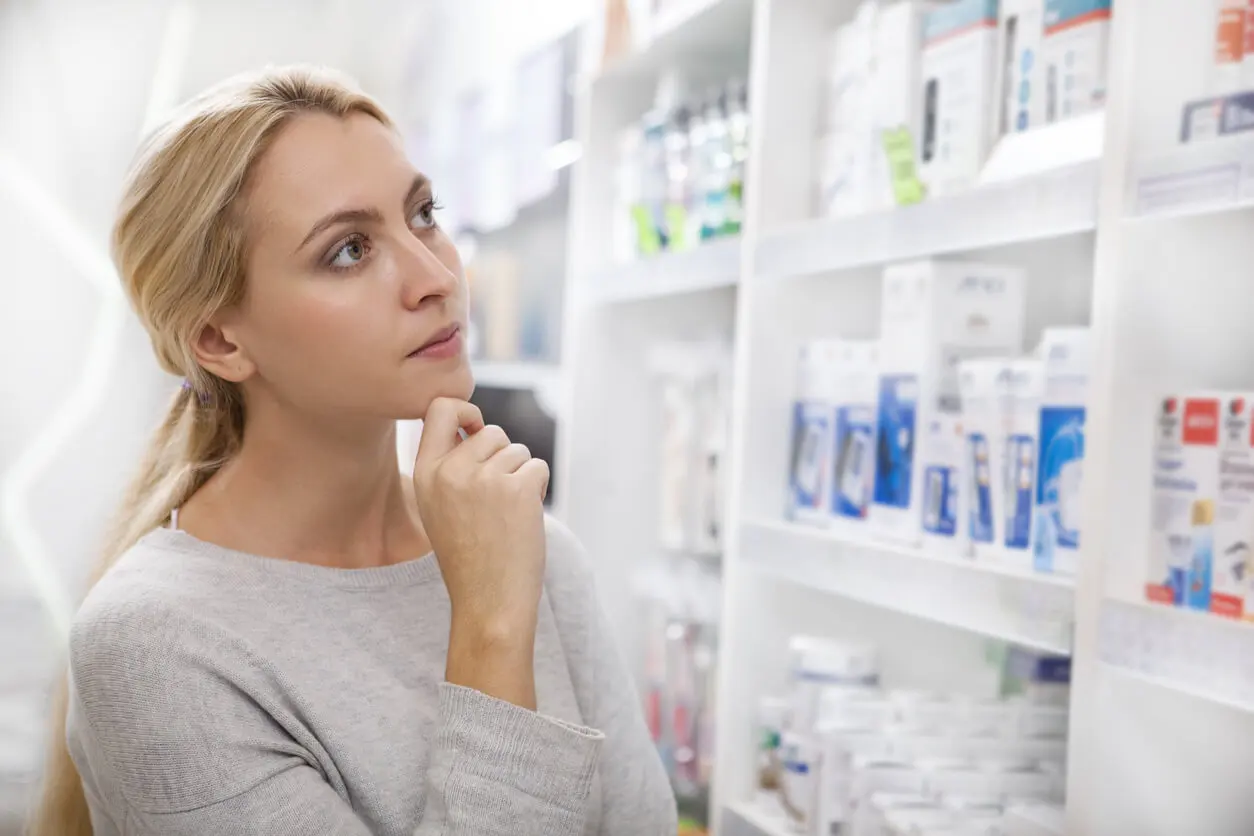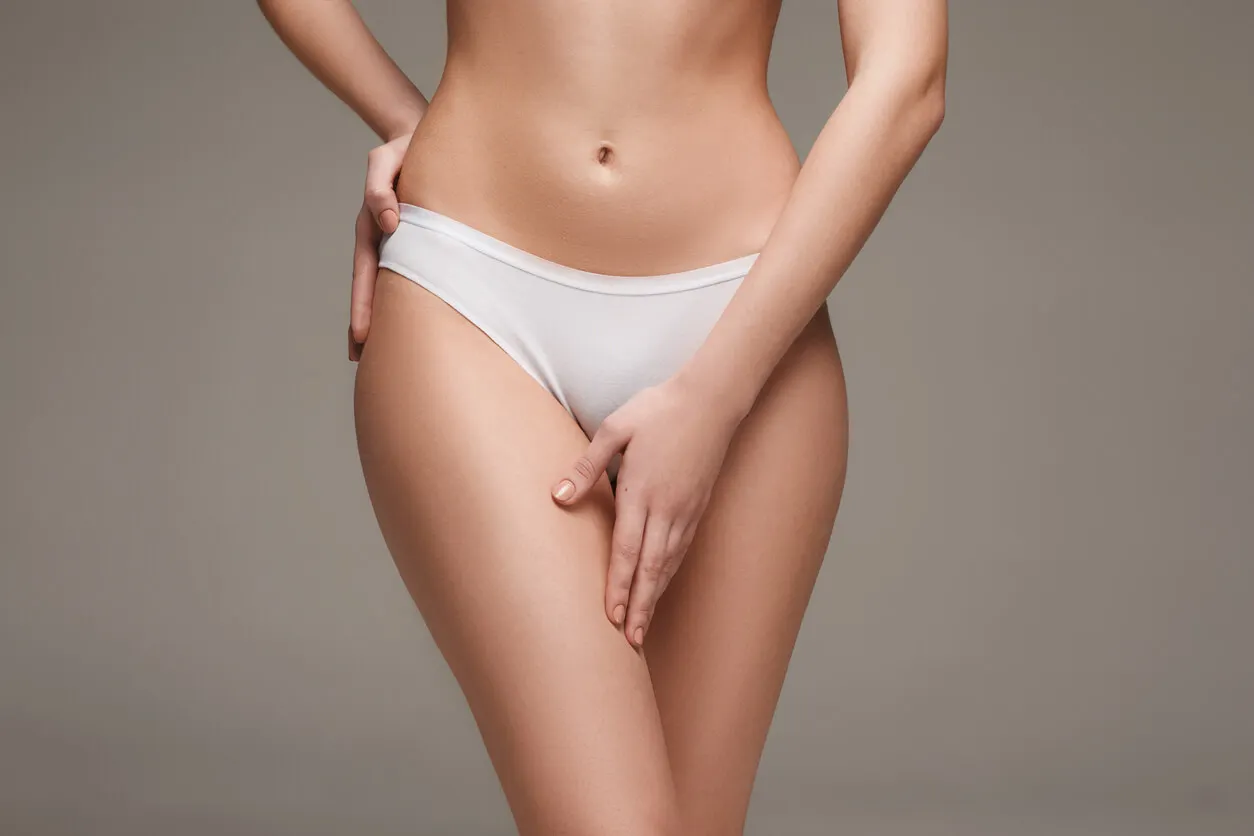Intimate Soaps: Is it a Good Idea to Use Them?


Reviewed and approved by the doctor Leonardo Biolatto
Intimate soaps have been around for several years as a complement to women’s hygiene. Whether in liquid, tablet or gel form, manufacturers claim that they have gentle, moisturizing and safe formulas for the sensitive skin of the “V” area.
But despite their popularity, their use has become a subject of controversy. While advertisements claim that they are a solution to keep the vagina clean and free of bad odor, gynecologists warn that their regular use carries some risks.
What should you know about it? Continue reading!
What are intimate soaps?
Products for female intimate cleansing are quite popular in the market. Among these, women use intimate soaps the most. These cleansing formulas are for areas such as the vulva, clitoris and vaginal opening.
They come in the form of liquid, tablet or gel, with a composition that promises to be compatible with the pH of the genital area. Proponents claim that they help balance the vaginal flora and neutralize unpleasant odors. In addition, they attribute antimicrobial and moisturizing properties to them.
Are they effective? Do they fulfill their function?
To answer these questions it is necessary to consider that the vagina has the capacity to self-clean itself. As stated in an article in the Center for Women’s Health, it is not necessary to put any product inside the vagina to ensure its hygiene.
In general, external washing (of the vulva) with water -preferably warm water- is sufficient to keep the area clean. You can complement it with soap, as long as it is neutral and free of perfumes.
That said, the application of intimate soaps is unnecessary.
However, it is true that some formulas of this type of products refresh, clean and moisturize the external parts of the intimate area. But you must be careful since any substance that comes into contact with the vulva can easily enter through the vaginal canal.
If you opt for cleansers of this type, they must be dermatologist-tested and recommended by gynecologists. They must also be hypoallergenic and free of perfumes. These characteristics can be found on the label.

Is it safe to use intimate soaps?
Most of the intimate soaps available on the market claim to be respectful with the vaginal pH and the delicate skin of this area. Even so, evidence suggests that their use poses more risks than benefits.
A study shared through Microbial Ecology in Health and Disease found that the use of vaginal products can be harmful to Lactobacillus bacteria, responsible for maintaining a healthy vaginal environment.
In itself, their application is associated with an alteration of the vaginal immune barrier, not only by destroying the Lactobacillus, but because it promotes a pro-inflammatory environment that increases the risk of disease. The result? Increased susceptibility to sexually transmitted infections, general bacterial and yeast infections, and irritation.
In fact, as research shared in Womens Health exposes, this is linked to an increased risk of pelvic inflammatory disease and endometriosis . Although more extensive studies are needed, for now the safest measure is to avoid both douching and contact with products that can be irritating (soaps, gels, creams, perfumes and the like).
What is the right way to clean the intimate area?
Firstly, remember that the vaginal canal has blood vessels and a bacterial flora that can protect and eliminate harmful microorganisms. Therefore, it is said that it fulfills a process of “self-cleaning” without the need for external products.
However, it is important to clean the external part of the labia minora, since cell residues and oils (smegma) tend to accumulate there, which can lead to bad odor. Daily washing with water is usually sufficient to clean the area.
If you choose to use soap, it should be neutral and fragrance-free. To facilitate the removal of residues, use a washcloth or simply your fingers. Skip any other items, such as loofahs, as they can cause irritation, tearing and increase the risk of infection.
As for the frequency of washing, once a day is sufficient. Less washing of the area is usually not enough to remove traces of sweat and secretions. However, excessive washing is not recommended either, as it can cause an imbalance of the vaginal microflora.
Other recommendations for vaginal care
In addition to avoiding the use of irritating intimate soaps when washing the intimate area, there are other cares that contribute to its health. Let’s see in detail the most important ones:
- Avoid using daily intimate protectors. These affect the ventilation of the region and create an environment conducive to bacterial growth.
- Use cotton underwear. Unlike synthetic fabrics, cotton facilitates ventilation of the area. In addition, white or beige garments are best, since colored ones may contain dyes that alter the vaginal flora.
- Always wash from front to back. This is to reduce the risk of transferring bacteria from the anus to the vagina.
- Avoid tight-fitting clothing. Very tight jeans and pants tend to create a warm, moist environment that facilitates the proliferation of harmful microorganisms.

Read 5 Intimate Habits that Aren’t as Hygienic as You Thought
Is it advisable to use intimate soaps?
When weighing the benefits and risks of intimate soaps, it is clear that the potential harmful effects are greater. Evidence suggests that rinsing with such products can alter the vaginal microbiota, resulting in an increased risk of infections and inflammatory diseases.
Doctors and gynecology professionals suggest that hand and water washing is the safest way to keep this area healthy. Even so, it is possible to use a neutral, perfume-free soap.
Dermatological tested and gynecologist-approved intimate soaps also appear to be safe for vaginal hygiene. In any case, you should reserve their use only for the external area (vulva and clitoral hood). Never introduce products into the vaginal canal.
All cited sources were thoroughly reviewed by our team to ensure their quality, reliability, currency, and validity. The bibliography of this article was considered reliable and of academic or scientific accuracy.
- Center for Women´s Health. Ohio State University. The care and keeping of your vagina. https://www.ohsu.edu/womens-health/care-and-keeping-your-vagina
- Chen, Y., Bruning, E., Rubino, J., & Eder, S. E. (2017). Role of female intimate hygiene in vulvovaginal health: Global hygiene practices and product usage. Women’s Health, 13(3), 58-67.
-
Holdcroft, A. M., Ireland, D. J., & Payne, M. S. (2023). The Vaginal Microbiome in Health and Disease—What Role Do Common Intimate Hygiene Practices Play?. Microorganisms, 11(2), 298. https://doi.org/10.3390/microorganisms11020298
-
Martino, J. L., & Vermund, S. H. (2002). Vaginal douching: evidence for risks or benefits to women’s health. Epidemiologic reviews, 24(2), 109-124.
- Nicole W. (2014). A question for women’s health: chemicals in feminine hygiene products and personal lubricants. Environ Health Perspect, 122(3): A70-5. doi: 10.1289/ehp.122-A70.
-
Sabo, M. C., Balkus, J. E., Richardson, B. A., Srinivasan, S., Kimani, J., Anzala, O., … & McClelland, R. S. (2019). Association between vaginal washing and vaginal bacterial concentrations. PLoS One, 14(1), e0210825.
- Trifonova, R. T., Pasicznyk, J. M., & Fichorova, R. N. (2006). Biocompatibility of solid-dosage forms of anti-human immunodeficiency virus type 1 microbicides with the human cervicovaginal mucosa modeled ex vivo. Antimicrobial Agents and Chemotherapy, 50(12), 4005-4010.
This text is provided for informational purposes only and does not replace consultation with a professional. If in doubt, consult your specialist.








